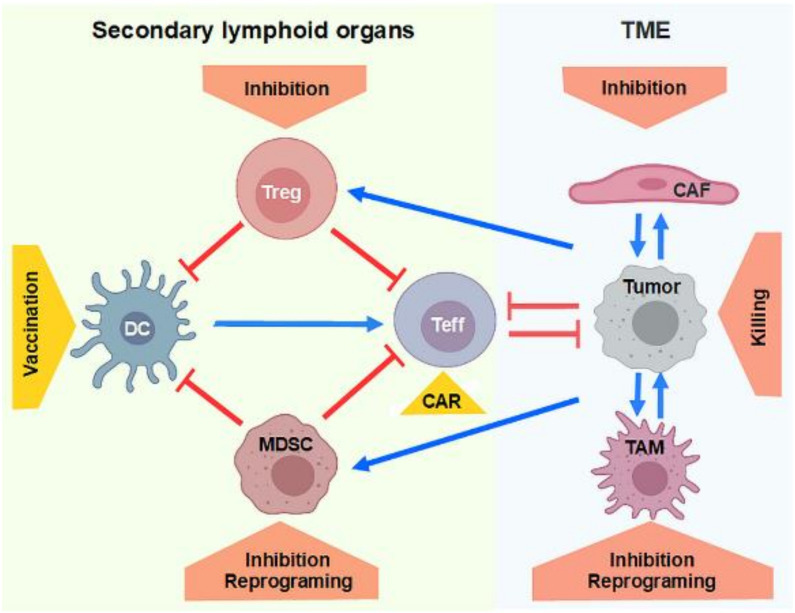Figure 1.
Nucleic acid-based strategies for tumor therapy. Vaccination of dendritic cells (DC) aims to induce tumor-specific effector T cells (Teff), which in turn kill tumor cells. Regulatory immune cells, regulatory T cells (Treg) and myeloid-derived suppressor cells (MDSC), are induced by the tumor and other cells of the tumor microenvironment (TEM) and inhibit both DC and Teff. The expansion and suppressive activity of Treg/MDSC can be inhibited by RNA interference (RNAi) and MDSC may be reprogramed to yield antigen presenting cells by applying nucleic acid-based stimuli. Further, T cells can be transfected/transduced with chimeric antigen receptors (CAR) to gain tumor specificity. Teff are inhibited by factors within the TME. Tumor-specific delivery of nucleic acids (gene-coding or conferring RNAi) is aimed to induce apoptosis in tumor cells, and to inhibit or reprogram accessory cells within the TME, tumor-associated macrophages (TAM), and cancer-associated fibroblasts (CAF).

